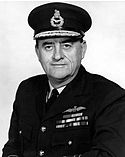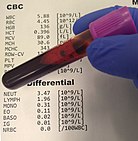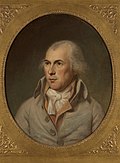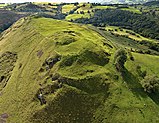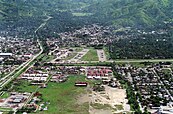Wikipedia:Today's featured article/December 2020
| << | Today's featured articles for December 2020 | >> | ||||
|---|---|---|---|---|---|---|
| Su | Mo | Tu | We | Th | Fr | Sa |
| 1 | 2 | 3 | 4 | 5 | ||
| 6 | 7 | 8 | 9 | 10 | 11 | 12 |
| 13 | 14 | 15 | 16 | 17 | 18 | 19 |
| 20 | 21 | 22 | 23 | 24 | 25 | 26 |
| 27 | 28 | 29 | 30 | 31 | ||
December 1
Jack Crawford (1 December 1886 – 2 May 1963) was an English first-class cricketer who played mainly for Surrey County Cricket Club and for South Australia. An amateur, he played as an all-rounder. Unusually for a first-class cricketer, Crawford wore spectacles while playing. He played Test cricket before he was 21 years old for England, and successfully toured Australia with the Marylebone Cricket Club in 1907–08. He played only 12 matches for England, although critics believed he had a great future in the sport and was a potential future England captain. After a dispute with Surrey cricketing authorities, he moved to Australia, but after another dispute, moved to New Zealand to play for Otago, though that relationship also ended badly. After service in the First World War, he returned to England and played a handful of games between 1919 and 1921. Although he continued to play cricket at a lower level, the remainder of Crawford's life passed in relative obscurity. (Full article...)
December 2
The alpine newt (Ichthyosaura alpestris) is a species of newt native to continental Europe and introduced to Great Britain and New Zealand. Adults measure 7–12 cm (2.8–4.7 in) and are usually dark grey to blue on the back and sides, with an orange belly and throat. The alpine newt occurs at high altitude as well as in the forested lowlands, and migrates to water for breeding. Males are conspicuously coloured during breeding season, and court females with a ritualised display. The aquatic larvae grow up to 5 cm (2.0 in) in around three months, and most metamorphose into terrestrial juvenile efts, which mature into adults at around three years. Larvae and adults feed mainly on diverse invertebrates and themselves fall prey to dragonfly larvae, large beetles, fish, snakes, birds or mammals. Although still relatively common, alpine newt populations are decreasing. The main threats are habitat destruction, pollution and the introduction of fish such as trout into breeding sites. (Full article...)
December 3
The Princesse de Broglie is an oil-on-canvas painting by the French Neoclassical artist Jean-Auguste-Dominique Ingres. Painted between 1851 and 1853, it shows Pauline de Broglie, who adopted the courtesy title princesse, and married Albert de Broglie, the 28th prime minister of France. She was aged 28 at the time of its completion. Although highly intelligent and widely known for her beauty, Pauline suffered from profound shyness, and the painting captures her melancholia. She contracted tuberculosis and died in 1860 aged 35. The painting is considered one of the artist's finest later-period female portraits, along with those of Comtesse d'Haussonville, of Baronne de Rothschild and of Madame Moitessier. As with many of Ingres's female portraits, details of costume and setting are rendered with a chilly precision while her body seems to lack a solid bone structure. The portrait is in the Metropolitan Museum of Art, New York. (Full article...)
December 4
The Battle of Pontvallain, part of the Hundred Years' War, took place in north-west France on 4 December 1370. A French army under Bertrand du Guesclin heavily defeated an English force which had broken away from an army commanded by Robert Knolles. The French numbered 5,200 men, and the English force was approximately the same size. The English had plundered and burnt their way across northern France from Calais to Paris. With winter coming, the English commanders fell out and divided their army. The battle consisted of two separate engagements: one at Pontvallain where, after a forced march which continued overnight, Guesclin surprised a major part of the English force, and wiped it out. In a coordinated attack, Guesclin's subordinate, Louis de Sancerre, caught a smaller English force the same day, at the nearby town of Vaas, also wiping it out. The French harried the surviving Englishmen into the following year, recapturing much lost territory. (Full article...)
December 5
The Pyramid of Neferirkare was built for the Fifth Dynasty pharaoh Neferirkare Kakai in the 25th century BC. It was the tallest structure on the highest site at the Abusir necropolis and still towers above it today. The Fifth Dynasty marked the end of the great pyramid constructions during the Old Kingdom. Pyramids of the era were smaller and had intricate relief decoration. Neferirkare's pyramid was originally built as a step pyramid, a design antiquated after the Third Dynasty (26th or 27th century BC). Alterations were intended to convert it into a true pyramid, but the pharaoh's death left the project to his successors. Completed in haste, Neferirkare's monument lacked a valley temple and pyramid town. Instead, there was a small settlement of mudbrick houses where cult priests could conduct their daily activities. The Abusir papyri were discovered in the temple of Neferirkare in 1893. (Full article...)
December 6
The 1st Cavalry Division was a cavalry formation of the Royal Yugoslav Army that formed part of the Yugoslav 1st Army Group during the German-led Axis invasion of the Kingdom of Yugoslavia in April 1941. Along with the rest of the Yugoslav Army, the 1st Cavalry Division began mobilising on 3 April 1941. Three days later the Germans commenced operations against the Yugoslav frontiers (map of operations pictured). By the end of the following day, the division's cavalry brigade headquarters and all of the division's cavalry regiments had been detached for duty with other formations. The divisional-level units remained in the vicinity of Zagreb until 10 April, when they were ordered to establish a defensive line southeast of Zagreb along the Sava river, with infantry and artillery support. The division had only begun to deploy for this task when the German 14th Panzer Division captured Zagreb. The divisional headquarters and all attached units surrendered. (Full article...)
December 7
"Blank Space" is a song recorded by American singer-songwriter Taylor Swift (pictured) for her fifth studio album, 1989. The song was released to US radio stations as the second single from 1989 on November 10, 2014, by Republic Records in partnership with Swift's label at the time, Big Machine. Swift co-wrote the song with its producers Max Martin and Shellback. "Blank Space" spent seven weeks at the top of the US Billboard Hot 100, and has been certified eight times platinum by the Recording Industry Association of America. Contemporary critics praised the song's production and Swift's songwriting, and some picked it as 1989's highlight. The song earned three nominations at the 58th Grammy Awards, including in two general categories—Record of the Year and Song of the Year. Cover versions of the song in various genres have been performed by I Prevail, Ryan Adams, and other rock musicians. (Full article...)
December 8
Cyclone Chapala was a powerful tropical cyclone that hit Yemen and brushed Somalia in November 2015. The third named storm of the 2015 North Indian Ocean cyclone season, it developed as a depression on 28 October off western India, and strengthened a day later into a cyclonic storm. On 30 October, the India Meteorological Department estimated Chapala's peak three-minute sustained winds at 215 km/h (130 mph). The Joint Typhoon Warning Center estimated one-minute sustained winds of 240 km/h (150 mph), making Chapala one of the strongest cyclones on record in the Arabian Sea. Chapala skirted the Yemeni island of Socotra on 1 November, becoming the first hurricane-force storm there since 1922. Upon entering the Gulf of Aden on 2 November, it became the strongest known cyclone in that body of water. After brushing Somalia, the storm made landfall on 3 November, near Mukalla, Yemen, as a very severe cyclonic storm. It was the strongest storm on record to strike Yemen, where eight people died. (Full article...)
December 9
Alister Murdoch (9 December 1912 – 29 November 1984) was a senior commander in the Royal Australian Air Force (RAAF). Joining the Air Force in 1930, Murdoch trained as a seaplane pilot, and went on an Antarctic rescue mission in 1935. During World War II, he commanded No. 221 Squadron RAF in Europe and the Middle East, and later occupied senior positions on the staff of RAAF formations in the South West Pacific. His post-war appointments included Commandant of RAAF College from 1952 to 1953, Air Officer Commanding (AOC) Training Command from 1953 to 1955, Deputy Chief of the Air Staff from 1958 to 1959, AOC Operational Command from 1962 to 1965, and finally Chief of the Air Staff (CAS) from 1965 to 1969, when he retired. His term as CAS coincided with increased Australian participation in the Vietnam War, and he came into conflict with Australian Army commanders over the employment of helicopters in battle. (Full article...)
December 10
The death of Cleopatra, the last ruler of Ptolemaic Egypt, occurred in 30 BC in Alexandria, when she was 39 years old. According to Greek and Roman historians, she poisoned herself using either an ointment or a sharp implement such as a hairpin. Modern scholars debate the validity of these accounts, and of ancient reports involving snakebites as the cause of death. Cleopatra's death effectively ended the final war of the Roman Republic between triumvirs Octavian (Augustus) and Mark Antony, in which she aligned herself with Antony, father to three of her children. Her suicide circumvented the humiliation of being paraded as a prisoner in a Roman triumph celebrating the military victories of Octavian, who in 27 BC became Rome's first emperor. Cleopatra's death marked the end of the Hellenistic period and Ptolemaic rule of Egypt, as well as the beginning of Roman Egypt. The death has been depicted in various works of art throughout history. (This article is part of a featured topic: Cleopatra.)
December 11
The London Beer Flood was an accident at Meux & Co's Horse Shoe Brewery (pictured) on 17 October 1814. When one of the 22-foot-tall (6.7 m) wooden vats of fermenting porter burst, the pressure destroyed another vessel, and between 128,000 and 323,000 imperial gallons (580,000–1,470,000 l; 154,000–388,000 US gal) of beer were released. The resulting wave of porter destroyed the back wall of the brewery and swept into an area of slum dwellings. Eight people were killed. The coroner's inquest returned a verdict that they had lost their lives "casually, accidentally and by misfortune". The brewery was nearly bankrupted by the event; it avoided collapse after a rebate from HM Excise on the lost beer. After the accident the brewing industry gradually stopped using large wooden vats, replacing them with lined concrete vessels. The brewery moved in 1921, and the Dominion Theatre is now where the brewery used to stand. (Full article...)
December 12
A complete blood count (CBC) is a set of medical laboratory tests that provide information about the cells in a person's blood. The CBC indicates the counts of white blood cells, red blood cells and platelets, the concentration of hemoglobin, and the hematocrit (the volume percentage of red blood cells). The CBC is often carried out as part of a medical assessment, and can be used to monitor health or diagnose diseases. The results are interpreted by comparing them to reference ranges, which vary with gender and age. A landmark in the automation of blood cell counts was the Coulter principle (1953), which uses electrical impedance measurements to count blood cells and measure their sizes. This technology remains in use in many automated analyzers. Further research in the 1970s involved the use of optical measurements to count and identify cells, which enabled the automation of the white blood cell differential. (Full article...)
December 13
The 1982 Formula One World Championship featured sixteen rounds from January to September, spanning the 36th season of Fédération Internationale de l'Automobile (FIA) Formula One motor racing. Keke Rosberg (pictured) won the Drivers' Championship, becoming the second driver to achieve the feat after winning only one race in the season. The year was marked by several incidents and tragedies: a drivers' strike at the first race in South Africa, a partial race boycott as part of the ongoing FISA–FOCA war at the San Marino Grand Prix, as well as the death of two drivers. Gilles Villeneuve died during qualifying for the Belgian Grand Prix, and Riccardo Paletti at the start of the Canadian Grand Prix. Didier Pironi, while leading the championship, crashed during qualifying for the German Grand Prix, forcing him to retire from the sport. Nevertheless, Scuderia Ferrari won the Constructors' Championship after replacing Villeneuve with Patrick Tambay and Pironi with 1978 World Champion Mario Andretti. (Full article...)
December 14
The first election for Virginia's 5th congressional district took place on February 2, 1789. In a race that turned on the candidates' positions on the need for a Bill of Rights, James Madison (depicted) defeated James Monroe for a place in the First Congress. It is the only congressional election in U.S. history in which two future presidents opposed each other. The race came about when former governor Patrick Henry and other Anti-Federalists sought to defeat Madison. They put forward Monroe, a young but experienced politician, who campaigned vigorously. Despite bitterly cold weather, the two candidates debated outdoors; traveling after one such meeting, Madison suffered frostbite on his face. Madison won the election comfortably, to the applause of his supporters such as President-elect George Washington. The race did not affect Madison's friendship with Monroe, who would serve as Madison's Secretary of State and succeed him as president in 1817. (Full article...)
December 15
The Emperor's New School is an American animated television series created by Mark Dindal that aired on Disney Channel for two seasons between January 2006 and November 2008. Based on the 2000 film The Emperor's New Groove, the series centers on Kuzco, who must graduate from Kuzco Academy to become emperor of the Inca Empire, with the help of the villager Pacha and fellow student Malina. The series combines physical comedy with a self-aware tone. J. P. Manoux replaced David Spade as the voice actor for Kuzco. New School used traditional 2D animation to preserve elements of the film's distinctive art style. The high-school setting provided storylines based on the everyday challenges of adolescence. New School received mixed reviews from critics; several praised the voice acting of Eartha Kitt (pictured) but others found the characters unlikable. The series was also criticized for its minimal educational value and frequent displays of socially aggressive behavior. (Full article...)
December 16
Banksia serrata, the old man banksia, is a species of woody shrub or tree in the family Proteaceae. It is found from Queensland to Victoria, commonly growing as a gnarled tree up to 16 m (50 ft) in height, though it can be much smaller in more exposed areas. It has wrinkled grey bark and shiny dark green serrated leaves. The large yellow or greyish-yellow flower spikes turn grey as they age, and pollinated flowers develop into large, grey, woody seed pods. This Banksia species is one of four collected by Joseph Banks in 1770, and one of four published in 1782 as part of Carl Linnaeus the Younger's original description of the genus. Throughout its range, it grows exclusively in sandy soils, and is usually the dominant plant where it grows in scrubland or low woodland. B. serrata is pollinated by and provides food for a wide array of vertebrate and invertebrate animals in the autumn and winter months. It is a common plant of parks and gardens. (Full article...)
December 17
Interstate 296 (I-296) is a part of the Interstate Highway System in the US state of Michigan. It is a state trunkline highway that runs for 3.43 miles (5.52 km) parallel to the Grand River on the west bank, entirely within the Grand Rapids area. Its termini are I-196 near downtown Grand Rapids and I-96 on the north side of Grand Rapids in Walker. For most of its length, the Interstate runs concurrently with US Highway 131, which continues as a freeway built to Interstate Highway standards north and south of the shorter I-296. The highway was first proposed in the late 1950s and opened in December 1962. The Michigan Department of Transportation has since eliminated all signage for I-296 and removed the designation from their official state map, leaving it unsigned, but I-296 is still listed on the Interstate Highway System route log maintained by the Federal Highway Administration. (Full article...)
December 18
Mount Takahe is a 3,460-metre-high (11,350 ft) snow-covered shield volcano in Marie Byrd Land, Antarctica, 200 kilometres (120 mi) from the Amundsen Sea. It is about 30 kilometres (20 mi) wide with parasitic vents and a caldera up to 8 kilometres (5 mi) wide. Most of the volcano was formed by trachytic lava flows. It reached its present height about 200,000 years ago. Snow, ice, and glaciers cover most of Mount Takahe. With a volume of 780 km3 (200 cu mi), it is a massive volcano; the parts of the edifice that are buried underneath the West Antarctic Ice Sheet are probably even larger. It is part of the West Antarctic Rift System along with eighteen other known volcanoes. A major eruption took place around 17,700 years ago, possibly forming an ozone hole over Antarctica. The last eruption occurred about 7,600 years ago; there is no present-day activity. The name of the volcano refers to the takahē, a flightless bird from New Zealand. (Full article...)
December 19
Achelousaurus was a ceratopsid dinosaur that lived about 74.2 million years ago, during the Late Cretaceous. The first fossils of the genus were collected from the Two Medicine Formation in the U.S. state of Montana in 1987. Mainly known from skull material, Achelousaurus was about 6 m (20 ft) long, with a weight of about 3 tonnes (3.3 short tons). It had a large head with a hooked beak, and a bony neck-frill with a pair of long, curved spikes. In the places where other centrosaurines often had horns, Achelousaurus had bosses (roundish protuberances) above the eyes and on the snout that may have been used in fights and for display. It has been suggested that Achelousaurus was a transitional form between Einiosaurus (which had spikes but no bosses) and Pachyrhinosaurus (which had larger bosses), though this is debated. As a ceratopsian, Achelousaurus would have been a herbivore. It appears to have had a high metabolic rate, though lower than that of modern mammals and birds. (Full article...)
December 20
Oxenfree is a supernatural-mystery graphic adventure game. Developed and published by Night School Studio, it was released for Windows, OS X, Xbox One, PlayStation 4, and Linux in 2016 and iOS, Android, and Nintendo Switch in 2017. Players assume the role of teenager Alex on a weekend trip to a local island. Alex and her friends must unravel the island's secrets after supernatural events occur. The developers designed Oxenfree as a story-driven game without cutscenes; players choose dialogue via a "walk and talk" mechanic. Oxenfree's audiovisual presentation marries dark, organic, and analog elements with bright, geometric, and digital ones. The release was accompanied by development documentaries, an alternate reality game, and a collector's edition. Oxenfree received generally positive reviews; critics praised the presentation and characters, although some reviewers were left wanting more. The game was nominated for "Best Narrative" at The Game Awards 2016. (Full article...)
December 21
Sergo Ordzhonikidze (1886–1937) was a Bolshevik and Soviet politician from Georgia. Joining the Bolsheviks at a young age, he became an important figure and was arrested repeatedly. After the Bolsheviks came to power in 1917, he oversaw the invasions of Azerbaijan, of Armenia, and of Georgia. He backed their union into the Transcaucasian Socialist Federative Soviet Republic in 1922, one of the original Soviet republics, and served as its first secretary until 1926. He then oversaw Soviet economic production and led a massive overhaul; he implemented five-year plans, helped create the Stakhanovite movement and was named to the Politburo. He was reluctant to join the campaign against so-called wreckers and saboteurs in the early 1930s, causing friction with Joseph Stalin. Before a meeting where he was expected to denounce workers, Ordzhonikidze shot himself. He was posthumously honoured, and several towns and cities in the Soviet Union were named after him. (Full article...)
December 22
Meghan Trainor (born December 22, 1993) is an American singer-songwriter and talent show judge. Her 2014 debut single "All About That Bass" reached number one on the US Billboard Hot 100 chart and sold 11 million copies worldwide. She won the 2016 Grammy Award for Best New Artist. Trainor has released three studio albums with Epic Records. In 2015, her pop and hip hop album, Title, included the top-10 singles "Lips Are Movin" and "Like I'm Gonna Lose You". It debuted at number one on the US Billboard 200. The single "No" led her R&B album Thank You (2016); both the song and the album reached number three on the respective charts. Trainor has had voice roles in the animated films Smurfs: The Lost Village (2017) and Playmobil: The Movie (2019), and has served as a judge on the television talent shows The Four: Battle for Stardom (2018) and The Voice UK (2020). She has won four ASCAP Pop Music Awards and two Billboard Music Awards. (This article is part of a featured topic: Overview of Meghan Trainor.)
December 23
The wood stork (Mycteria americana) is a large wading bird found in warmer parts of the Americas. North American birds may disperse to South America, where it is resident. Its bare head and neck are dark grey and the plumage is mostly white, with black on the tail and part of the wing. The sexes are similar, but the juvenile has a feathered head and a yellow, not black, bill. The wood stork nests colonially in wetlands, building its one-metre-diameter (3.3-foot) nest in trees; the breeding season starting when water levels drop. The clutch of three to five eggs is incubated for around 30 days, and the chicks fledge 60 to 65 days after hatching, although many die during their first two weeks. The chicks are fed fish while the adult also eats insects, frogs and crabs as available, foraging by touch in shallow water. The wood stork is classed as being of least concern by the IUCN although in the US it is threatened by predators and human activities. Habitat alteration has caused widespread declines. (Full article...)
December 24
Cefnllys Castle was a medieval spur castle sited on a ridge – possibly an earlier Iron Age hillfort – above the River Ithon in Radnorshire, Wales. The first masonry castle at the site was constructed around 1242 to control several routes through the Welsh Marches. Cefnllys became a source of friction between Llywelyn ap Gruffudd and Roger Mortimer in the prelude to Edward I's conquest of Wales. The castle was captured and razed in 1262 by Llywelyn, during a war with Henry III of England, and Cefnllys featured prominently in the ensuing peace treaty. The construction of a new castle was a contributing factor to Llywelyn's refusal to swear fealty to Edward I in 1275, leading to war in 1276. The castle may have been sacked during the revolts of Madog ap Llywelyn (1294–1295) and Owain Glyndŵr (1400–1415), but it remained occupied until at least the mid-15th century. Both castles are now entirely ruinous and only traces remain. (Full article...)
December 25
Anbe Sivam (Love Is God) is a 2003 Indian Tamil-language comedy-drama film directed by Sundar C. and produced by K. Muralitharan, V. Swaminathan and G. Venugopal of Lakshmi Movie Makers. The film was written by Kamal Haasan (pictured), with dialogues provided by Madhan. Featuring Haasan, Madhavan and Kiran Rathod in the lead roles, the film tells the story of an unexpected journey from Bhubaneswar to Chennai. The musical score was composed by Vidyasagar. Arthur A. Wilson and M. Prabhaharan undertook responsibility for the film's cinematography and art direction, respectively. Produced on a budget of ₹120 million, Anbe Sivam's themes include communism, atheism, altruism and humanism. The film garnered positive reviews from critics, but underperformed at the box office. It is now regarded as a classic and a cult film in Tamil cinema. At the 51st Filmfare Awards South, it received a Special Jury Award. Madhavan was awarded Best Actor at the 2003 Tamil Nadu State Film Awards. (Full article...)
December 26
The 2017 EFL Trophy Final was an association football match that was played on 2 April 2017 at Wembley Stadium, London, between League One teams Coventry City and Oxford United. The match decided the winner of the 2016–17 EFL Trophy, a 64-team knockout tournament comprising clubs from League One and League Two of the English Football League (EFL), as well as 16 Category One academy sides representing Premier League and Championship clubs. It was Coventry's first appearance in the final and the second for Oxford, who had been beaten by Barnsley in the previous season's match. The game was played in front of a crowd of 74,434, the highest attendance for the final since the opening of the new Wembley Stadium. Coventry won 2–1 to earn their first major trophy since their victory in the 1987 FA Cup Final. The win was a highlight for Coventry's supporters in what was otherwise a disappointing season, as they were relegated to League Two. (Full article...)
December 27
The logistical support of INTERFET (International Force East Timor), a multinational peacekeeping mission in 1999 and 2000, involved 11,693 personnel from 23 countries. Led by Australia, it was the largest deployment of Australian forces overseas since the Vietnam War. INTERFET deployed to East Timor in September 1999. A base was established in Darwin, with supplies, equipment, stores and personnel stockpiled or staged there. East Timor possessed only one deepwater port, Dili, with a limited quayside depth, and only three airfields (heliport pictured). Troops were initially landed with a minimum of vehicles and supplies. Effective logistical support enabled INTERFET to carry out its mission without severe limitations, although there were some shortages. Over 90 per cent of the cargo and most of the passengers travelled by sea. Eleven nations contributed transport aircraft, which flew 3,400 sorties, carried 9,500 tonnes of cargo and transported more than 30,000 passengers. (Full article...)
December 28
Louie Nunn (1924–2004) was the 52nd governor of Kentucky (1967–1971), the only Republican elected to that office between 1947 and 2003. The first Republican county judge in the history of Barren County, Kentucky, he ran for governor in 1963, but lost a close race to his Democratic opponent Ned Breathitt. In 1967, Nunn again ran for governor. After defeating Marlow Cook in the Republican gubernatorial primary, he eked out a victory over Democrat Henry Ward. Despite a Democratic majority in the General Assembly, Nunn was able to enact most of his priorities, including tax increases that funded improvements to the state park system and the construction of a statewide network of mental health centers. His administration was marred by race riots in Louisville and a violent protest against the Vietnam War at the University of Kentucky. Following his term as governor, he lost to Walter "Dee" Huddleston in the 1972 senatorial election, and to John Y. Brown Jr. for governor in 1979. (Full article...)
December 29
Knap Hill lies on the northern rim of the Vale of Pewsey, in northern Wiltshire, England, about a mile (1.6 km) north of the village of Alton Priors. At the top of the hill is a causewayed enclosure, a form of Neolithic earthwork that appeared in England from about 3700 BC onwards. These earthworks are characterised by the enclosure of an area with ditches that are interrupted by gaps, or causeways. It is not known what they were used for; they may have been settlements, meeting places, or ritual sites of some kind. Knap Hill was the first causewayed enclosure to be excavated and identified. In 1908 and 1909 Benjamin and Maud Cunnington spent two summers investigating the site, and Maud Cunnington published two reports of their work, noting that there were several gaps in the ditch and bank surrounding the enclosure. The site has been scheduled as an ancient monument. About a thousand causewayed enclosures have now been found in Europe, including around seventy in Britain. (Full article...)
December 30
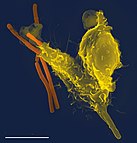
The immune system is a network of biological processes that protects an organism against disease. It detects and responds to a wide variety of pathogens, from viruses to parasitic worms, as well as cancer cells and objects such as wood splinters, distinguishing them from the organism's own healthy tissue. Many species have two major subsystems of the immune system. The innate immune system provides a preconfigured response to broad groups of situations and stimuli. The adaptive immune system provides a tailored response to each stimulus by learning to recognize molecules it has previously encountered. Both use molecules and cells to perform their functions. Humans have sophisticated defense mechanisms, including the ability to adapt to recognize pathogens more efficiently. Adaptive (or acquired) immunity creates an immunological memory leading to an enhanced response to subsequent encounters with that same pathogen. This process of acquired immunity is the basis of vaccination. (Full article...)
December 31
George Gosse (16 February 1912 – 31 December 1964) was an Australian recipient of the George Cross, the highest non-combat award for heroism or courage that could be awarded to a member of the Australian armed forces at the time. Gosse served in the Royal Australian Navy between 1926 and 1933, and in 1940 joined the Royal Australian Naval Volunteer Reserve. He served in the UK before being sent to British India as a naval mine clearance specialist. Returning to the UK in late 1944, in April 1945 he was given command of a party responsible for mine clearance in the recently captured Bremen Harbour in Germany. He displayed courage in defusing three mines under very difficult conditions between 8 May and 19 May 1945, for which he was awarded the George Cross. After the war Gosse reached the rank of lieutenant commander, retiring in 1958. He died of a heart condition in 1964. His medal set is displayed in the Hall of Valour at the Australian War Memorial. (Full article...)









